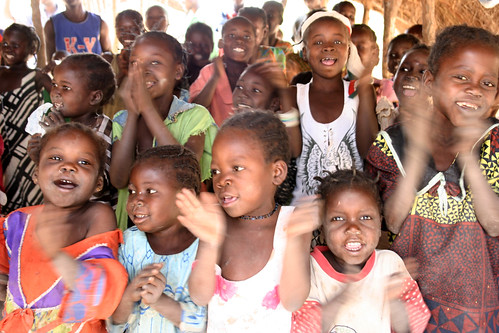18th June 2012
South Sudan: the Catholic Church in Action

Recent media comment on the Vatican and the Holy See has been dominated by speculation relating to the ‘Vatileaks’ scandal, or events at the IOR, the so-called ‘Vatican Bank’. This is unfortunate. Whatever the substance behind such stories, and however fascinating, there is a great deal more to the work of the global Catholic Church, run through the Holy See, than that. As an Ambassador to the Holy See, it is the bigger picture that interests me, not the speculation and gossip.
So a briefing I attended recently on the work of the Catholic NGO Solidarity with South Sudan was a breath of fresh air, and a timely reminder of that bigger picture. Solidarity was established in 2004 at the request of the Catholic Bishops of South Sudan to bring together the expertise and development skills of 200 different religious congregations to respond more effectively to the development needs of South Sudan. They currently have 30 religious and 2 lay development staff on the ground. Their focus is on the development of human capacity through training, principally in education, health, agriculture and governance, as well as providing post-conflict support. They are working across the country.
The needs are real. Only 7% of South Sudan’s teachers at independence had any training at all. One quarter of all children die before they reach 5 years old. There is just 1 nurse for every 10,000 inhabitants. Well over 80% of the population is classified as living in poverty. Yet alongside the problems, there is great hope and energy in South Sudan now that independence has been secured. The country needs and deserves help and support, and it is in our interest to see the most recent independent member of the United Nations flourish.
The British government, along with other bilateral donors, is providing significant funding – we are managing 14 projects at present on a total budget of over €150m. But it is organisations like Solidarity, working closely with Caritas Internationalis, the local Bishops’ Conference, and other partners, who are helping to make the real difference, on the ground, where it matters. They are an excellent example of the Catholic Church global development network in action. We are keen to work alongside them. They, not Vatileaks scandals, is the reason why we have an embassy to the Holy See.
Thanks for your thoughts on South Sudan. Please, visit http://www.emergenzanuba.it also in its English version, for updates on refugees from Sudan and Nuba Mountains.